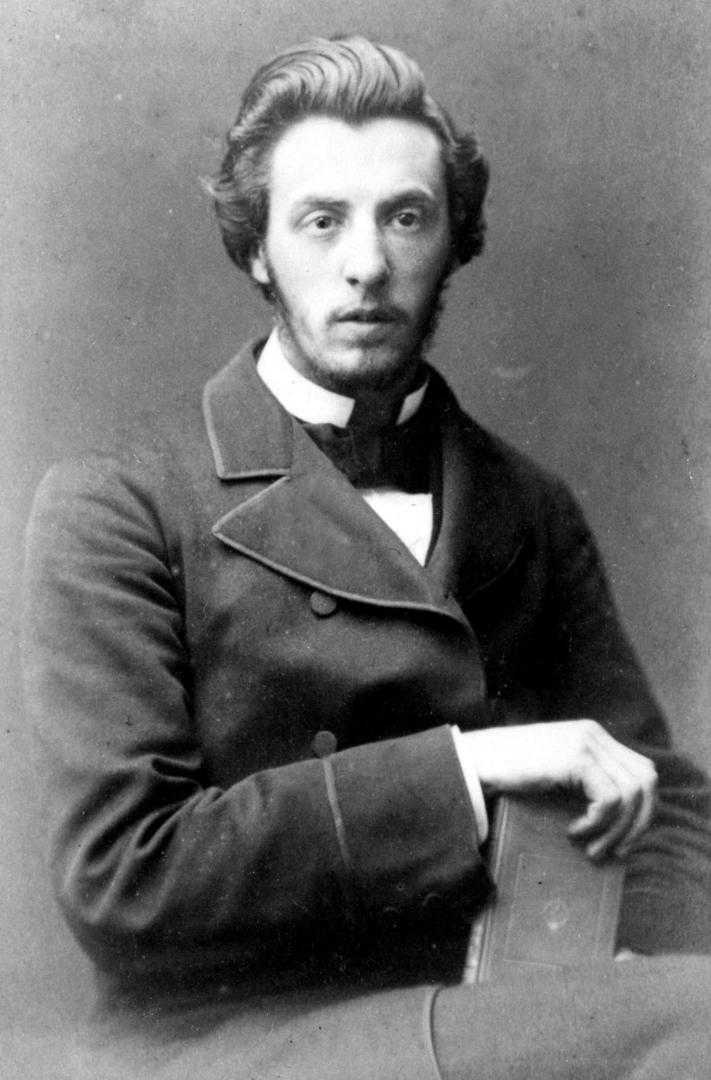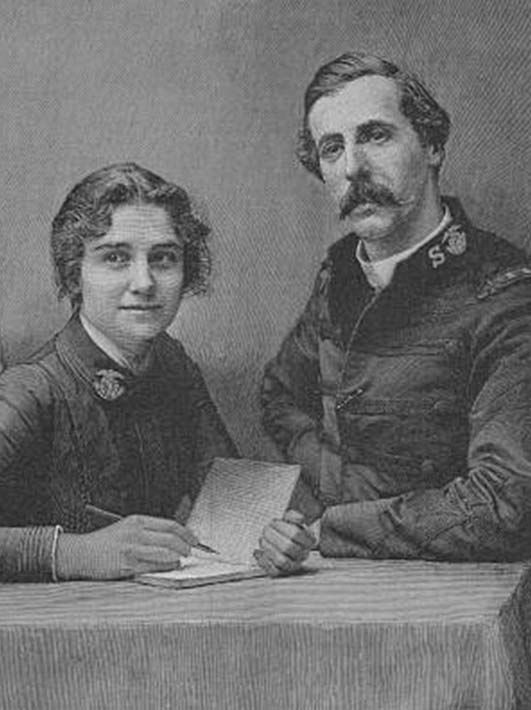From Bath Street and into Chapel Street, from one chapel to another …
1880: Teething troubles
On March 3rd, 1880, at its ordinary monthly meeting, Ilkeston’s Local Board agreed that a large room in the Town Hall could be rented by the Salvation Army on Sunday afternoons and evenings, for a term of 12 months, at a rent of 30 shillings per Sunday. Following this a detachment of the Salvation Army from Basford “began operations” at Ilkeston Town Hall on Sunday, March 21st, 1880, and by April the Army had also secured permission to rent the British Schoolroom in Bath Street for six months (weekly rent 12s). It was reported that these ‘operations’ had resulted in large numbers in the town joining the organsiation, and that local collections were financing the Army’s expenses. Similarly a sum of £20 had already been accumulated by the group and this was earmarked to finance the building of a permanent Salvation Army meetings hall. “The movement appears to be under the management of two women known as “Captain Marriott” and “Lieutenant Campbell”.”
On May 22nd, 1880 the “troops” assembled at the Great Northern Railway Station in Ilkeston to welcome the arrival of Captain Ballington Booth, son of the founders of the Salvation Army, who was accompanied by other officers.
They then marched up Bath Street, along South Street and Market Street, to hold a service at the rented Bath Street British schoolroom.
This was followed, the next day, by another march and an open-air “demonstration” in the Market Place where a large crowd, estimated at 3000, had gathered to hear speeches, while Ballington played on his “hallelujah fiddle“.
On that evening another meeting was held at the much larger South Street Sunday schoolroom where several new recruits were ‘enlisted‘.
By July 1880 some disquiet had surfaced among the members over an issue of expenses and how some collection money was being spent, such that it was mooted that a ‘splinter group‘ of the organisation would be formed in Ilkeston. About 100 members did indeed break away to form a separate society, with a committee of 12 to manage the group’s affairs, though most members in Ilkeston remained firm in their allegiance to their leaders. Ballington Booth once more visited the town to reconcile the ‘rebels‘ but he was unsuccessful; the new group renamed itself as “the Ilkeston Mutual Salvation Army“, and included in its midst Captain Heatley who hitherto had remained loyal to General Booth, the founder. For a while there was a hiatus in the Ilkeston meetings until Captain Alfred Haywood, with his family, arrived to lead the ‘original‘ yet smaller Army. Thus Ilkeston now had two Salvation Armies, though only one (the original) now paraded in the new uniform, not before seen in Ilkeston, with Captain Haywood performing on his “hallelujah accordion“.
In August 1880, William Booth’s wife, Catherine, came to Ilkeston to rally “the troops” with a public tea and later a lecture at the Town Hall, though she also had time to speak of ‘the rebellious captain‘ and the breakaway group which had formed; there was threatening talk of legal action if property and money retained by this group were not returned to their rightful owners. The Booth’s daughter, Catherine junior, subsequently held a series of Town Hall meetings before departing Ilkeston for France to try to introduce the Army there.
On August 29th 1880 Isaiah Sisson was acting as doorkeeper at a Salvation Army evening meeting, conducted by Captain Alfred Haywood at the Town Hall. Inspector Cowley, head of the police at Ilkeston, had spoken to Alfred prior to the meeting, asking the Captain if he could “manage to preserve a little more order at his meetings“. This was precisely what Alfred wanted and he hoped that the police would assist him. Consequently, to minimise the danger of disruption, he had instructed that no-one should leave until the meeting had finished and the collection had been taken. Unfortunately in the audience were young Alfred Whimby and Ezekiel Duro, both of whom had a different idea and while the Captain was still speaking they approached the door, intending to make a quick getaway. Isaiah blocked their way and a scuffle broke out, with a lot of abusive language, pushing and shoving, and with other audience members joining in, giving the doorkeeper a few kicks for good measure.
Everyone appeared at Heanor Petty Sessions a few days later when Alfred pleaded guilty to assault but with provocation, while Ezekiel swore that he was never in the room at all !! Both were fined, and with hefty costs. Ezekiel however chose to serve 14 days in prison rather than pay the fine.
In December of 1880 General Booth approached the Local Board of Ilkeston, asking to be released from his agreement to hire the Town Hall on Sundays; the agreement had another three months to run. The Board agreed to cancel the ‘contract’.
—————————————————————————————————————————————————
1881-1901: Progress
I would like to thank Jennifer Floyd for allowing me to copy and post the following sections on the history of Ilkeston Salvation Army. They are taken directly from her splendid pictorial history book entitled “A Century of Memories: The Salvation Army, Ilkeston, 1880-1980”
This ‘Old Ilkeston’ account ends here but Jennifer’s book takes us on into the twentieth century with many fascinating photos.
————————————————————————————————————————-
And now, perhaps from the sublime to the …. ? at Providence Place, what should we find but yet another beerhouse !!






